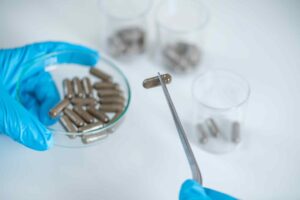microbiota transplantation
Neuroscience
Future studies should have clearly defined hypotheses, adequate sample size, standardized protocols, and replication using multiple independent approaches.
Gastroenterology
Fiber can influence how well bacteria from a fecal microbiota transplant successfully settle and grow in a person’s gut.
Gastroenterology
Region-specific microbial transplants may be safer and more effective than standard fecal microbiota transplants.
Scientific research
Altered gut bacteria may contribute to fibromyalgia and modifying the gut microbiota could offer a promising approach to reduce symptoms of the condition.
Gastroenterology, The Bold Column
The gut microbiome is now being explored not only for its role in health and immunity, but more and more for how it might improve performance. So, what happens when…
Gastroenterology
Nutrient competition is the main mechanism of C. difficile inhibition, hinting at the potential for targeted therapies with probiotics instead of traditional FMT.
Gastroenterology
Fecal Microbiota Transplantation (FMT) showing promise beyond C. difficile infection in conditions like IBD, IBS, and metabolic disorders.
Gastroenterology
By suggesting that the diversity and variety of microbial species play a big role in whether the transplanted microbes can successfully colonize a recipient’s gut, the findings could pave the…
Gastroenterology
The findings show that C. difficile infection affects cholesterol metabolism and disrupts the gut microbiota by reducing beneficial bacteria and increasing harmful ones, with fecal microbiota transplant proving more effective…
Oncology
The findings support the idea that the gut microbiota modulates immune responses, suggesting new avenues for cancer treatment.











